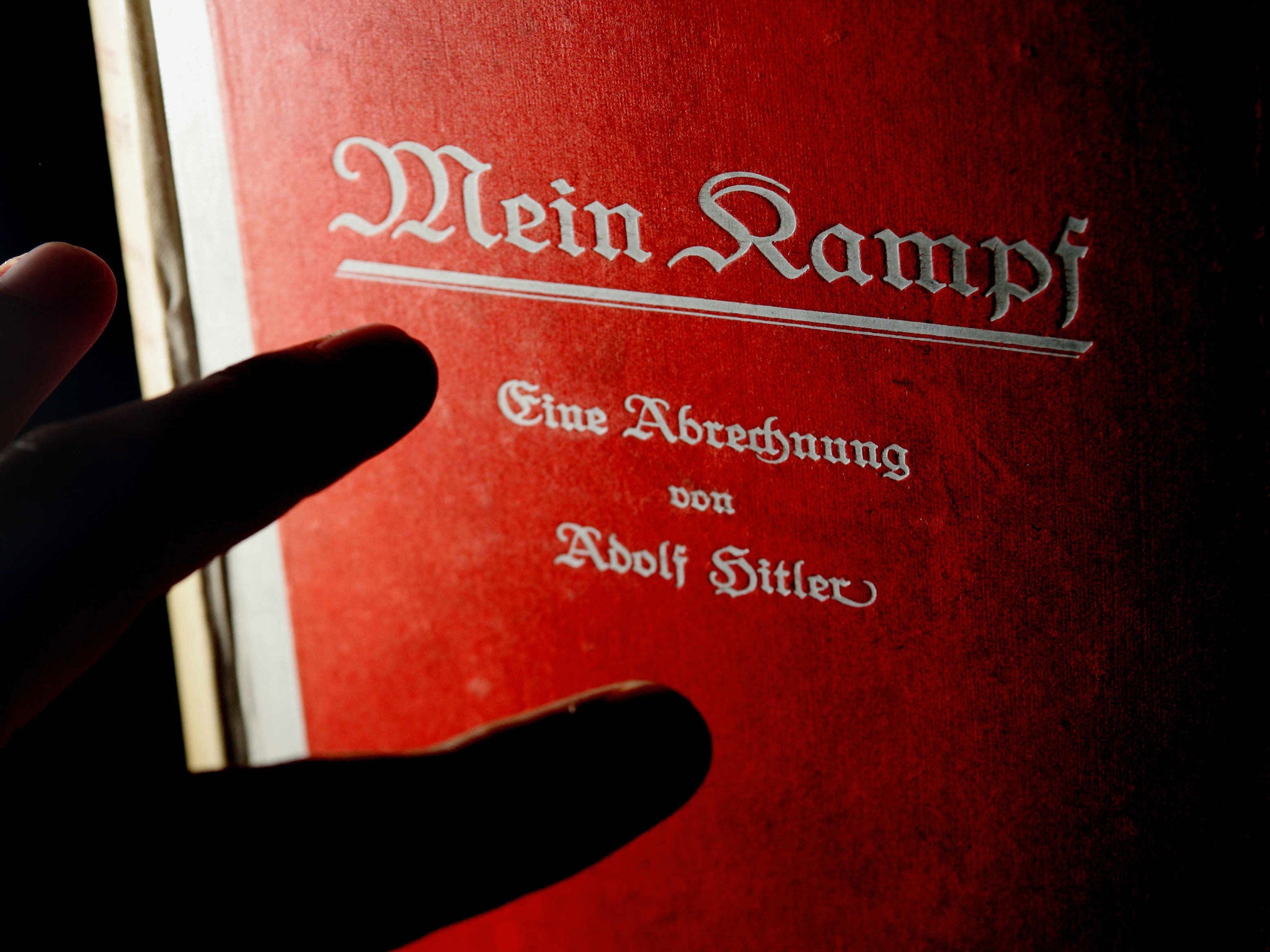Mein Kampf legalised: Bavaria drops veto on German edition of Adolf Hitler's manifesto

Your support helps us to tell the story
From reproductive rights to climate change to Big Tech, The Independent is on the ground when the story is developing. Whether it's investigating the financials of Elon Musk's pro-Trump PAC or producing our latest documentary, 'The A Word', which shines a light on the American women fighting for reproductive rights, we know how important it is to parse out the facts from the messaging.
At such a critical moment in US history, we need reporters on the ground. Your donation allows us to keep sending journalists to speak to both sides of the story.
The Independent is trusted by Americans across the entire political spectrum. And unlike many other quality news outlets, we choose not to lock Americans out of our reporting and analysis with paywalls. We believe quality journalism should be available to everyone, paid for by those who can afford it.
Your support makes all the difference.Bavaria has cleared the way for Adolf Hitler’s manifesto Mein Kampf to be published in Germany for the first time since the Second World War.
The state owns the copyright for the book and had blocked all attempts to publish a new German language edition because of fears that it would encourage a resurgence of the far right. However, the copyright, which transferred to the state of Bavaria after the Nazi party’s publishing house Eher Verlag was liquidated in 1945, expires next year.
Plans to republish the book with an academic commentary early in 2016 were approved in 2012, but last December the idea was blocked following complaints from Holocaust survivors. Bavaria then declared that the book was “seditious” and should never appear in print in German.
However, the state has now revised its ruling. “We have changed our minds,” said Ludwig Spaenle, the Bavarian Minister of Culture, on Wednesday. He said Bavaria would not oppose the project because it was in the interests of “freedom of science”.
Bavaria had initially supported the academic version with €500,000 funding. But now the state will withdraw its financial support, and the book is expected to be published by Munich’s Institute of Contemporary History.
Some members of the Bavarian legislature had been angered by the state’s decision to block the annotated version. After decades of opposition, Germany’s Central Council of Jews also swung in favour of an academic version of Mein Kampf.
Stefan Kramer, the council’s general secretary, said the internet had made him change his views. “It is very important that young people should see the critical version when they click on to Mein Kampf on the web,” he said. The book has been available in translation and in countries outside Germany for decades.
Hitler wrote Mein Kampf, which means “My Struggle”, in 1924 while serving a four-year prison term. The book contains his views on racial purity and his hatred of communists and Jews. It also hints at his plans for the Holocaust.